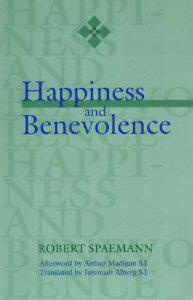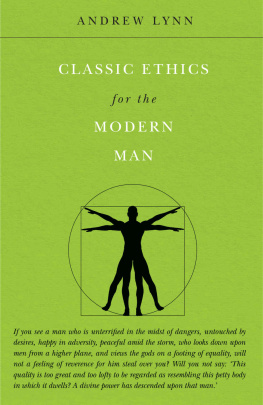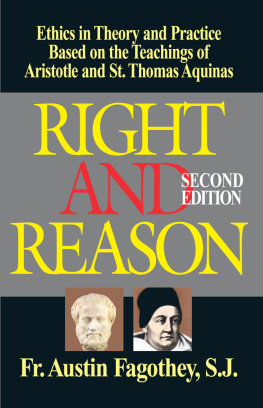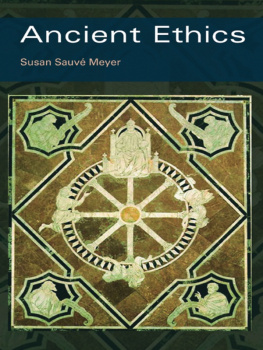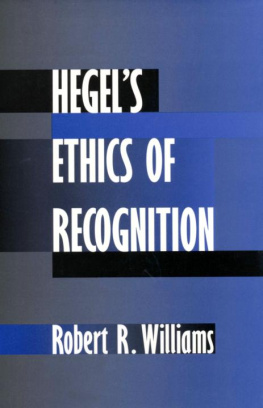Robert Spaemann - Happiness and Benevolence
Here you can read online Robert Spaemann - Happiness and Benevolence full text of the book (entire story) in english for free. Download pdf and epub, get meaning, cover and reviews about this ebook. year: 2005, publisher: Bloomsbury T&T Clark, genre: Religion. Description of the work, (preface) as well as reviews are available. Best literature library LitArk.com created for fans of good reading and offers a wide selection of genres:
Romance novel
Science fiction
Adventure
Detective
Science
History
Home and family
Prose
Art
Politics
Computer
Non-fiction
Religion
Business
Children
Humor
Choose a favorite category and find really read worthwhile books. Enjoy immersion in the world of imagination, feel the emotions of the characters or learn something new for yourself, make an fascinating discovery.
- Book:Happiness and Benevolence
- Author:
- Publisher:Bloomsbury T&T Clark
- Genre:
- Year:2005
- Rating:4 / 5
- Favourites:Add to favourites
- Your mark:
- 80
- 1
- 2
- 3
- 4
- 5
Happiness and Benevolence: summary, description and annotation
We offer to read an annotation, description, summary or preface (depends on what the author of the book "Happiness and Benevolence" wrote himself). If you haven't found the necessary information about the book — write in the comments, we will try to find it.
Happiness and Benevolence — read online for free the complete book (whole text) full work
Below is the text of the book, divided by pages. System saving the place of the last page read, allows you to conveniently read the book "Happiness and Benevolence" online for free, without having to search again every time where you left off. Put a bookmark, and you can go to the page where you finished reading at any time.
Font size:
Interval:
Bookmark:

Happiness and Benevolence
Robert Spaemann
Afterword by Arthur Madigan, S J.
Translation by Jeremiah Alberg, S.J.
University of Notre Dame Press
Notre Dame London
2000
Contents
Part I
Part II
Foreword
MY HOPE is that these thoughts on ethics contain nothing fundamentally new. In seeking answers to questions about the right kind of life, only the false could be really new. Still, given that the actual conditions of life and the concepts available for our self-understanding change, even that which humans have always known has to be rethought from time to time. The challenge which ethical reflection presents remains fundamentally unchanged since the fifth century B.C. This gives us grounds for speaking of an anthropological constant, at least a constant in all developed cultures.
We are presented with a double challenge. First, our various and particular drives do not, of their own, integrate themselves into a life which turns out well. Human beings have to "lead" their lives, and this has to be learned. The immediate satisfaction of desires does not stand in a pre-established harmony with "happiness." Ancient ethics focused on this theme: eudaimonia, that is, how to lead one's own life so that it turns out well. Everyone wants his life to turn out well, and yet it is not clear to most people in what this well-lived life consists. Ancient ethics taught the art of living.
The second challenge stems from the lack of a pre-established harmony between individuals' interests in the turning out well of their own lives and the interests of others. "One person's loss is another's gain." In culturally developed, complex societies, parasitic behavior remains largely unpunished and therefore often "pays off." Hence, we are seldom in a position to cooperate with the welfare of others or with the bonum commune , unless we set aside our own interests. This is the focus of modern ethics. For Kant, just as for an utilitarian or an ethician of the discourse theory, individual happiness is subordinated to a higher standard, which first determines the "worthiness of happiness."
The difficulty for any eudaimonistic ethics consists is the grounding of a principled interest in the welfare of others. In addition to this it must make intelligible the notion of an accountability not only to one's own self but/or one's own self. On the other hand any ethics which universalizes what "ought" to be done, faces the difficulty of explaining why anyone would have a real interest of the kind that brings an individual to will what he sees would be good if everyone else would also will it.
In the last few years a certain rehabilitation of the eudaimonistic morality of prudence has begun. But faced with the logic of universality, this rehabilitation has not progressed beyond a kind of stalemate. There are two reactions to this stalemate. One is resignation. Such resignation lets the issue remain undecided, with two completely independent sources of ethical orientation which cannot be reduced to each other or any more basic principle. This implies a renunciation of philosophical ethics. Two signposts which point in different directions are as good as none at all, as long as we cannot find a third one by which their difference could be interpreted. This third signpost would be the philosophic one.
The other reaction attempts to relate the two approaches to each other by some order of priority, and in this way to integrate one of the approaches into the other. Ancient ethics clearly thought of the fulfilling of duties toward others as an integral part of eudaimonia. Kant argued in the opposite direction. For him, as for utilitarian ethics, the concern for one's own prosperity becomes a conditional duty, a commandment of the categorical imperative or a part of optimizing the world. Kant saw it as an ethical duty to nurture one's hope for the highest good, the convergence of morality and happiness, not because such hope is consoling, but because it promotes moral behavior. Neither attempt at integration truly overcomes the dualism between eudaimonism and universalism; rather they merely reproduce it on a higher level.
The reflections in this book are searching for some principle more fundamental than this dualism, a principle which could make sense of the dualism itself. For now it remains an open question whether such a more fundamental principle, even if discovered, can be adequately proven. Perhaps our principle can only be pointed to, not articulated in terms of more fundamental principles. The question, Why be moral?, would then be incapable of a reasoned answer, since the question itself is no longer moral. The question does not adhere to reason, but asks beyond it, into the emptiness beyond it. One cannot demand to hear reasons why one should listen to reasons.
The eudaimonistic answer always leads to merely hypothetical rules of prudence, which make the unconditionedness of morality disappear. Diderot already confronted the demand for universalism with the sighs of the homme trouble, who is not in the position to separate himself from himself and his own wish for happiness. Rules and commands, like conceptions of happiness, are never primary; they presume perceptions. Perceptions, in turn, pre- sume someone capable of perceiving. "Agere sequitur esse" ("Action follows being") as Thomas Aquinas puts it and also, "Qualis unusquisque est talis finis videtur ei" ("What appears to someone as a desirable goal depends on what kind of person one is.") Fichte formulated this insight in quite the same way. The perception which makes the human human is the perception of being. Emmanuel Levinas understands "being' in a modern sense as objectivization. Therefore, the revelation of others comes for him from somewhere "beyond being."
In its classical as well as its everyday meaning, being means first and foremost being a self, the self as a being already beyond all objectivization. Since its paradigm is human being, it is not then to be defined in reference to the human, that is, to human subjectivity. There is no ethics without metaphysics, but ethics no more precedes ontology, in the sense of first philosophy, than the latter does the former. Ontology and ethics - the one as much as the other - are constituted uno actu through the intuition of being as being a self. The second part of this book, under the title "Benevolence," proceeds from this intuition, which presumes the separation of practical from theoretical philosophy. The antinomies implicit in the thought of happiness only resolve themselves only for the person who has awoken from slumber.
January 1989
Translator's Preface
For Prof. Robert Spaemann, "ethics" is the teaching about how one's life can turn out well. To formulate ethics in this way already gives a strong indication of how he will proceed. One could characterize this book as an attempt to reconstruct the ancient notion of eudaimonia, often translated "blessedness," but which Spaemann translates as "a life which turns out well," in light of the Kantian critique that deeds done out of the hope of reward lose something of their moral purity. One does the right thing because it is right. One cannot obtain happiness, but one can live in such a way that one is worthy of happiness.
According to Spaemann, human life can be conceived of as a whole. In fact, it must be so conceived, and this whole can be said to turn out either well or badly, to succeed or to fail. Failing at life as a whole is a sobering thought, and sobering thoughts help to rouse one.
"Have I awakened to the reality of the other?" This was the question that kept recurring to me as I first read Happiness and Benevolence. It recurs to me still. Has the other become real to me, or does this one remain remote, a mere extension of my self? And yet it remains in the nature of this awakening that one cannot directly will it. The condition of slumber renders the person incapable of making this act of the will. One has to be awakened. Perhaps this book can serve as an instrument in one's awakening. Perhaps it can help one to become aware that one stands in need of awakening. That itself is no small matter.
Next pageFont size:
Interval:
Bookmark:
Similar books «Happiness and Benevolence»
Look at similar books to Happiness and Benevolence. We have selected literature similar in name and meaning in the hope of providing readers with more options to find new, interesting, not yet read works.
Discussion, reviews of the book Happiness and Benevolence and just readers' own opinions. Leave your comments, write what you think about the work, its meaning or the main characters. Specify what exactly you liked and what you didn't like, and why you think so.

